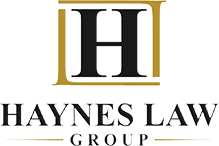We get calls on a regular basis from people who thought they were completely secure in their Reverse Mortgage (also called a “Home Equity Conversion Mortgage”) but have now found out they are being foreclosed on. How is this possible if the company who owns the Reverse Mortgage has made this agreement with the homeowner so they can live out their days in the home? The simple answer is to look to your agreement.
Florida Statute 697.202 defines a Home Equity Conversion Mortgage as “a reverse mortgage loan made to an elderly homeowner, which mortgage loan is secured by a lien on real property.” It also defines an “elderly homeowner” as someone who is 70 years of age or older. If the home is jointly owned, then both homeowners are deemed to be “elderly” if at least one of the homeowners is 70 years of age or older.
Many Reverse Mortgages contain clauses that state you must live on the property and that you must keep up with repair of the property. If these clauses are not followed to the letter, then the mortgage company will foreclose on the property and you might be liable for certain expenses. Some of these could include, but are not limited to, default on paying Property Taxes or Homeowner’s Insurance, Death of the Borrower, or Failure to make timely Repairs of the Property. These are not the only reasons, but these are the most common that we see.
Sometimes it is the Reverse Mortgage lender that is supposed to make the Property Taxes or pay the Homeowner’s Insurance much like a conventional mortgage may have these put into escrow to be paid by the lender. However, it is very common that the Reverse Mortgage homeowner must pay these. If an elderly homeowner forgets to pay the taxes or insurance for the property due to illness, dementia, or other affliction, then the lender can foreclose on the property. The lender will do this to protect its investment in the property. If this is the case, then the most common solution is to make sure these payments are made, give the receipt of these payments to the lender and you will most likely have to pay their attorney’s fees.
Next, if the borrower has recently died then the lender will foreclose on the property so they can take complete possession of the property or to have any non-homeowners removed from the property. Many Reverse Mortgage clauses will state that they have the right to accelerate the debt if a borrower dies and the property is not the principal residence of at least one surviving borrower. In the case of Nationstar Mortgage Company v. Levine from Florida’s Fourth District Court of Appeal in 2017 the owner and his spouse both lived in the property, but Mr. Levine was the only one who signed the Reverse Mortgage but died after 6 years after starting the Reverse Mortgage. His spouse was not on the mortgage and since Mr. Levine passed away, Nationstar exercised its right to accelerate the debt and ultimately foreclosed. One of the things that can be done in this case is for the spouse or another family member to buy out the reverse mortgage for 95% of the appraised value of the property or the actual cost of the debt (whichever is less). This can also be done if the person who passed away was the only one living in the property. The family can buy out the loan if they wish to keep the property in the family.
Another instance would be that if the property is damaged by some sort of natural disaster or from something else like a pipe bursting behind a wall. Many of these kinds of issues can be handled rather quickly by the homeowner’s insurance. However, in the case of the elderly owner who may become ill or have some other condition, the disrepair may worsen. If it is not repaired quickly, the Reverse Mortgage lender could foreclose on the property. As with the payment of the taxes and insurance, the way to handle this situation is to immediately take care of the damage. This might mean going to the insurance company to make sure repairs get done, or to pay out of pocket to make sure they get done. Once repairs are complete, then the homeowner needs to show proof of completion to the Reverse Mortgage holder and will likely have to pay their attorney’s fees.
In all of these instances, it is necessary to have a top-notch foreclosure defense team representing you for the duration of your case. You don’t have to go this alone. If you or a family member is being foreclosed on from your Reverse Mortgage, please give the Haynes Law Group, P.A. a call for a free consultation. We handle foreclosure defense cases all over the state of Florida and will be able to give you guidance on what to do while representing you or your family member on the Reverse Mortgage Foreclosure case. The consultation is always free.


